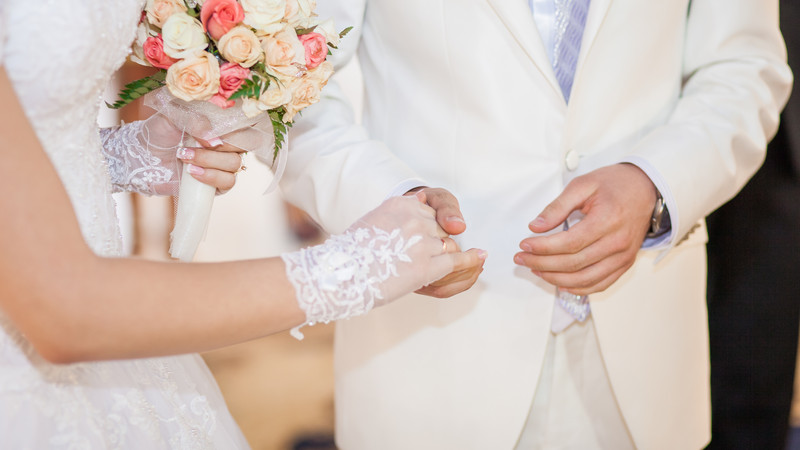A lot of engaged couples plan their wedding, it’s usually the reception plans that are the most time consuming. However, the most important order of business is having somebody officiate your marriage! Not only is it part of the wedding tradition, but it also makes your marriage legal. When choosing a wedding officiant, it’s important to have all of your questions and concerns ready before you consider any candidates.
Somebody you know
The first option to consider is asking somebody you already know. It’s always nice when the officiant is familiar with the couple. It makes the ceremony that much more intimate and personal. It also helps relieve a lot of stress. If you know somebody with a license, this might be your top choice. It’s also good to consider your religious beliefs and the option of having your local priest, minister, rabbi, or another clergy person from your faith officiate your wedding. Make sure that you meet with them and discuss what you would like and ask for their advice if needed.
Alternative officiants
In some cases, certain traditional or religious officiants might not be an option. This is where alternative officiants come in. They offer a more modern approach to suit the couple without making them feel pressured into certain practices or traditions. These include interfaith ministers, open-minded rabbis, and even some former Catholic priests. If you want something even more neutral in terms of religion, you can look for a justice of the peace or perhaps a retired judge. The key is to make sure that they are in fact ordained to perform the ceremony and that they are ordained in your area!
Location
Make sure that the officiant is able to perform the ceremony at the proposed location. They might be limited in terms of travel and, in some cases, there are other traditional factors. For example, some officiants insist on performing ceremonies at a religious location, and some will not perform outdoor weddings also for religious reasons.
License
As briefly mentioned earlier, it’s essential that you make sure the officiant you choose can, in fact, sign your marriage certificate. Being ordained in another country, for example, does not make them ordained around the world!
Dig into the details
Once you have a few officiants in mind, let them know exactly what you want. The officiant usually has plenty of advice to offer, but it’s that much more personal and memorable when the couple chooses readings, songs, and any other little details. This will ensure that the message conveyed on the day is approved by the couple and that nobody will be offended by the officiant simply speaking their mind. A wedding is supposed to be a happy and romantic occasion, so it’s important to make sure that the officiant does not start using this platform for their own purpose.
Choose your words wisely
When you watch a wedding ceremony on TV, you can usually say most of the officiant’s lines along with them. This is because so many lines have become well-known and almost cliché. If you are a fan of tradition, this might like the idea of hearing those words repeated at your wedding. Perhaps this has been your dream for years. On the other hand, if you don’t like the idea of hearing the officiant call you “man and wife” but prefer “husband and wife”, then say so! The planning stage is the time to speak up and let the officiant know. They cannot read your mind, and they should not be offended if you don’t like a certain word or phrase.
Ask about any rules
Officiants usually have a few deal breakers that need to be respected. If you have chosen a particular officiant from a particular church, they might have certain rules that they are not prepared to break. This is sometimes an issue for interfaith marriages and, if you cannot come to an agreement with the officiant, you might want to look elsewhere. In some cases, you might even be able to hire co-officiates who are prepared to conduct the ceremony together. Each of them catering to different religious needs. Alternatively, you could hire a justice of the peace or another neutral officiant and ask to have a relative or friend read religious passages if the officiant is unable to read them (like Hebrew prayers for example).
Write it all down
With everything else going on, it can be easy to forget various details. Make sure that you take a notepad along and write down all the answers to your questions and any other important information. Some officiants work with officiating agreements while others do not. If the latter is true, make sure that you submit an email with all the ceremony details to the officiant ahead of time and make sure that they respond to that email by confirming receipt and that all the points are agreed upon. If there are any issues on the officiant’s part, it should be detailed in the email reply.
Take a look at our listings at BeWed for Toronto wedding officiants.





